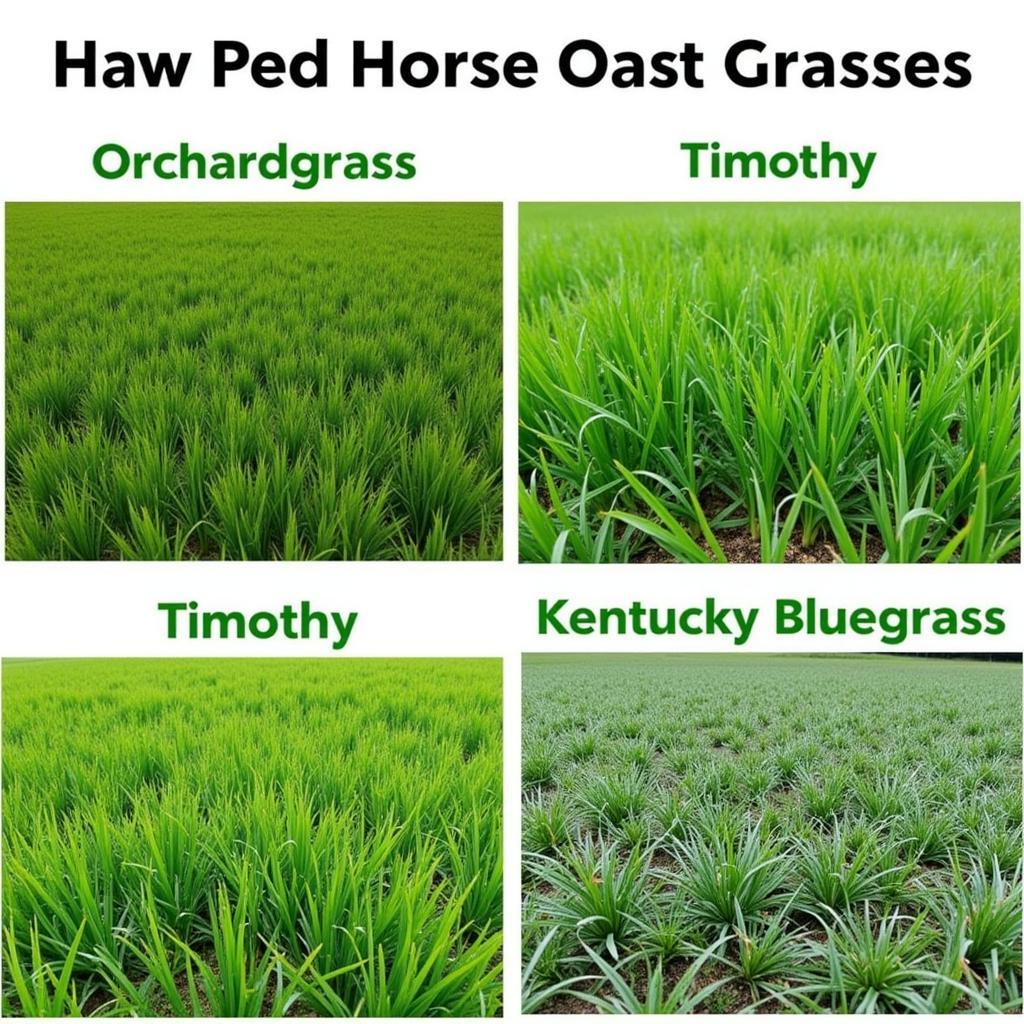Johnson grass and horses is a topic that sparks debate among horse owners. While this fast-growing grass provides ample forage, it also harbors a potential danger: cyanide poisoning. Understanding the risks and benefits of Johnson grass is crucial for responsible horse ownership.
Understanding the Risks of Johnson Grass for Horses
Johnson grass (Sorghum halepense) is a common pasture grass, particularly in warmer climates. Its rapid growth and resilience make it an attractive forage option. However, under certain conditions, Johnson grass produces cyanide, a highly toxic compound that can be fatal to horses. This cyanide production is often triggered by stress, such as drought, frost, or damage from herbicides. The younger shoots of Johnson grass are particularly high in cyanide, posing a significant risk to grazing horses. Symptoms of cyanide poisoning in horses can include rapid breathing, weakness, tremors, and even death.
Horses consuming Johnson grass should be closely monitored for any signs of distress. Early detection of cyanide poisoning is crucial for successful treatment. Veterinary intervention is often necessary, and prompt action can significantly improve the horse’s chances of survival.
After this section, a relevant internal link about other pasture options can be added: Horse Pasture Seed Mix could provide alternative solutions.
Mitigating the Risks of Johnson Grass
While the risks associated with Johnson grass are real, they can be mitigated with careful management. Regularly testing your pasture for cyanide levels is crucial. Several methods are available for testing, and consulting with a local agricultural extension service can provide guidance on the best approach for your area. Maintaining proper pasture management practices, such as avoiding overgrazing and ensuring adequate fertilization, can also help minimize cyanide production. Additionally, providing supplemental feed, like alfalfa pellets horse, can reduce the likelihood of horses consuming large quantities of Johnson grass, especially during periods of stress for the plant.
Is Johnson Grass Ever Safe for Horses?
Yes, under the right conditions, Johnson grass can be a safe forage option for horses. Mature Johnson grass plants generally have lower cyanide levels than young shoots. Ensuring that horses have access to other forage sources and that the Johnson grass is not the sole component of their diet can help reduce the risk of cyanide poisoning. Furthermore, proper pasture management, including regular mowing and fertilization, can minimize the plant’s stress levels, reducing the likelihood of cyanide production.
Dr. Emily Carter, DVM, Equine Specialist, emphasizes the importance of testing: “Regularly testing your pasture for cyanide is non-negotiable when dealing with Johnson grass. It’s the only way to ensure your horses are safe.”
Alternatives to Johnson Grass
Several alternative forage options exist for horse pastures. These alternatives may be safer choices, particularly if you’re concerned about the risks of Johnson grass. Orchardgrass, timothy, and Kentucky bluegrass are popular choices known for their nutritional value and palatability for horses. These grasses are generally less prone to cyanide production than Johnson grass. Consulting with a local agronomist or equine nutritionist can help you select the best forage mix for your specific region and your horses’ needs.
Considering natural fly spray for horses and horse feed through fly control can also improve overall horse health and pasture management.
 Alternative Horse Pasture Grasses
Alternative Horse Pasture Grasses
Conclusion
Johnson grass and horses can co-exist, but careful management is key. Regular testing, proper pasture maintenance, and providing supplemental feed are crucial to mitigate the risks of cyanide poisoning. By understanding the potential dangers and implementing appropriate management strategies, you can ensure your horses’ safety and well-being while still leveraging the benefits of this prolific grass. For more in-depth information about the interaction between Johnson grass and horses, visit our dedicated page: johnson grass and horses.
FAQ
- What are the signs of cyanide poisoning in horses?
- How often should I test my pasture for cyanide?
- What are some safe alternatives to Johnson grass?
- Can I completely eliminate Johnson grass from my pasture?
- What should I do if my horse exhibits symptoms of cyanide poisoning?
- How can I minimize the risk of cyanide production in Johnson grass?
- Is it safe to hay Johnson grass for horses?
For any assistance, please contact us at Phone Number: 0772127271, Email: [email protected] or visit our address: QGM2+WX2, Vị Trung, Vị Thuỷ, Hậu Giang, Việt Nam. We have a 24/7 customer service team.